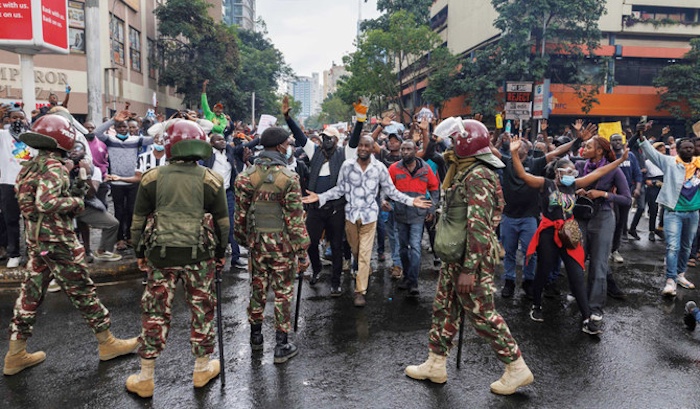
The Kenyan authorities paid networks of online trolls to harass, threaten and intimidate young protesters during the nationwide anti-government demonstrations of 2024 and 2025, Amnesty International has alleged in a new report.
According to the human rights organisation, state agencies deployed coordinated digital abuse, surveillance and disinformation campaigns to target youth-led protest organisers, many of whom mobilised through social media platforms such as X, TikTok and Facebook. The largely Gen Z–driven demonstrations focused on rising taxes, corruption, growing femicide cases and economic frustrations.
Kenya’s Interior Minister Kipchumba Murkomen rejected the accusations, insisting the government “does not sanction harassment or violence against any citizen” and that any officer found culpable would be held individually accountable.
But Amnesty’s findings point to what it described as a deliberate and systematic effort to “silence and suppress” the protest movement.
The report highlights widespread misogynistic and homophobic attacks, with young women and LGBT+ activists disproportionately targeted. In several cases, Amnesty said, state-linked troll networks circulated AI-generated pornographic images of activists to shame and intimidate them.
One protest organiser told researchers, “People were coming into my inbox saying, ‘You will die and leave your kids.’ Someone even sent me my child’s name, age and school bus number plate. They said if I continued protesting, they would ‘take care of’ the child.”
The activist said she was forced to change her child’s school for safety.
The long-rumoured existence of government-backed “keyboard warriors” appears to be confirmed by one individual interviewed in the report. He claimed he was part of a team receiving between 25,000 and 50,000 Kenyan shillings (US$190–$390) per day to amplify pro-government messaging and drown out protest hashtags on X.
Amnesty spoke to 31 young human rights defenders for the report, nine of whom said they received violent threats across multiple platforms, including WhatsApp.
The anti-government protests, which surged in 2024 and again in 2025, were met with a harsh security response. Rights groups say more than 100 people were killed in clashes with police, amid allegations of arbitrary arrests, enforced disappearances and excessive use of lethal force. While the government acknowledged some cases of police misconduct, it defended the security forces in other instances.
The report also raises concerns about unlawful state surveillance, including claims—denied by Safaricom, Kenya’s largest telecom provider—that authorities accessed mobile data to track protest leaders.
Amnesty Secretary-General Agnès Callamard said the findings reveal “widespread and coordinated tactics on digital platforms to silence and suppress protests by young activists.”
“Our research also proves these campaigns are driven by state-sponsored trolls, individuals and networks paid to promote pro-government messages and dominate Kenya’s daily trends on X,” she added.
As Kenya continues to face economic pressures and public distrust, the report underscores the widening battle between civic activism and state power—online and offline.
Melissa Enoch



